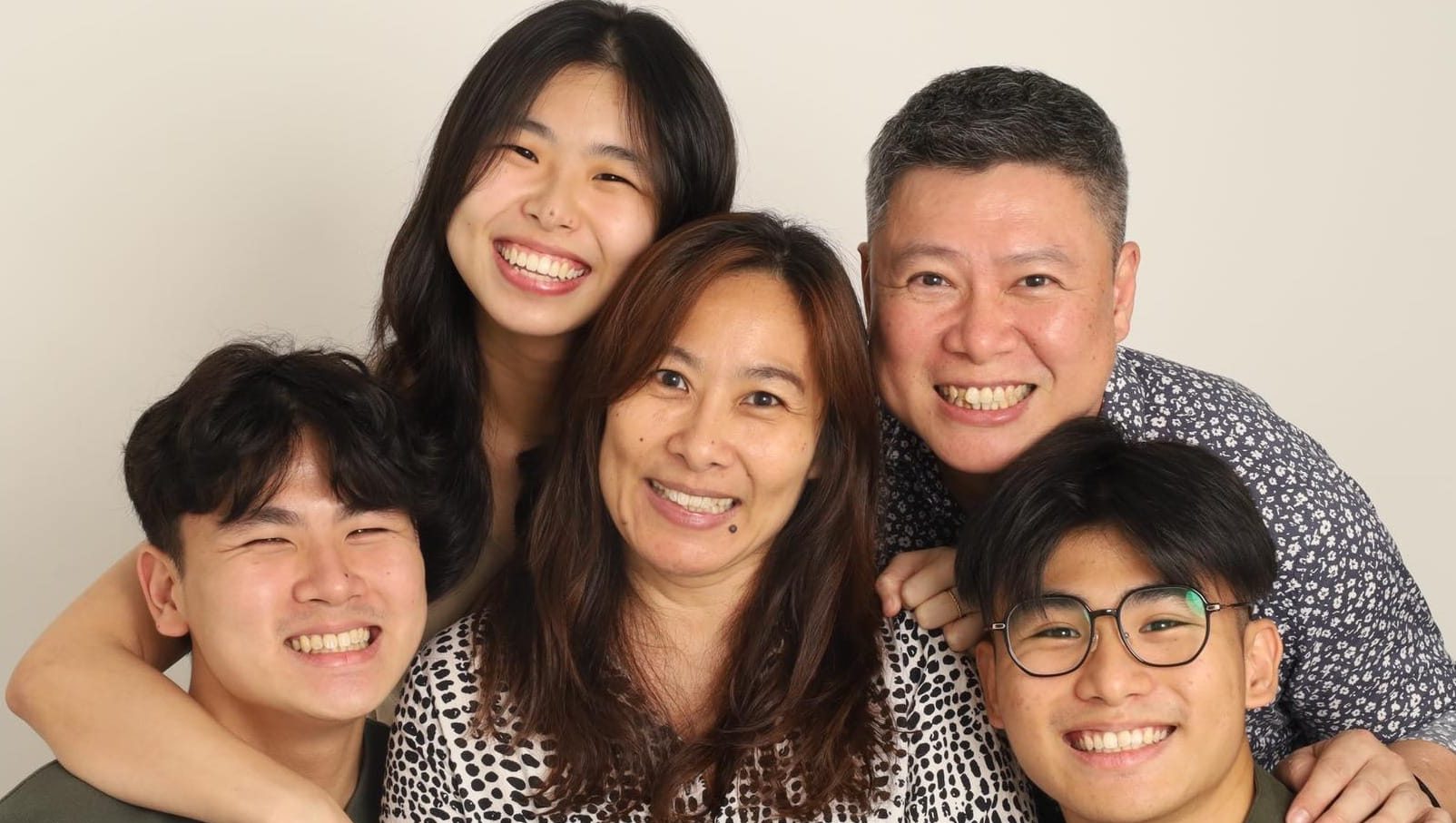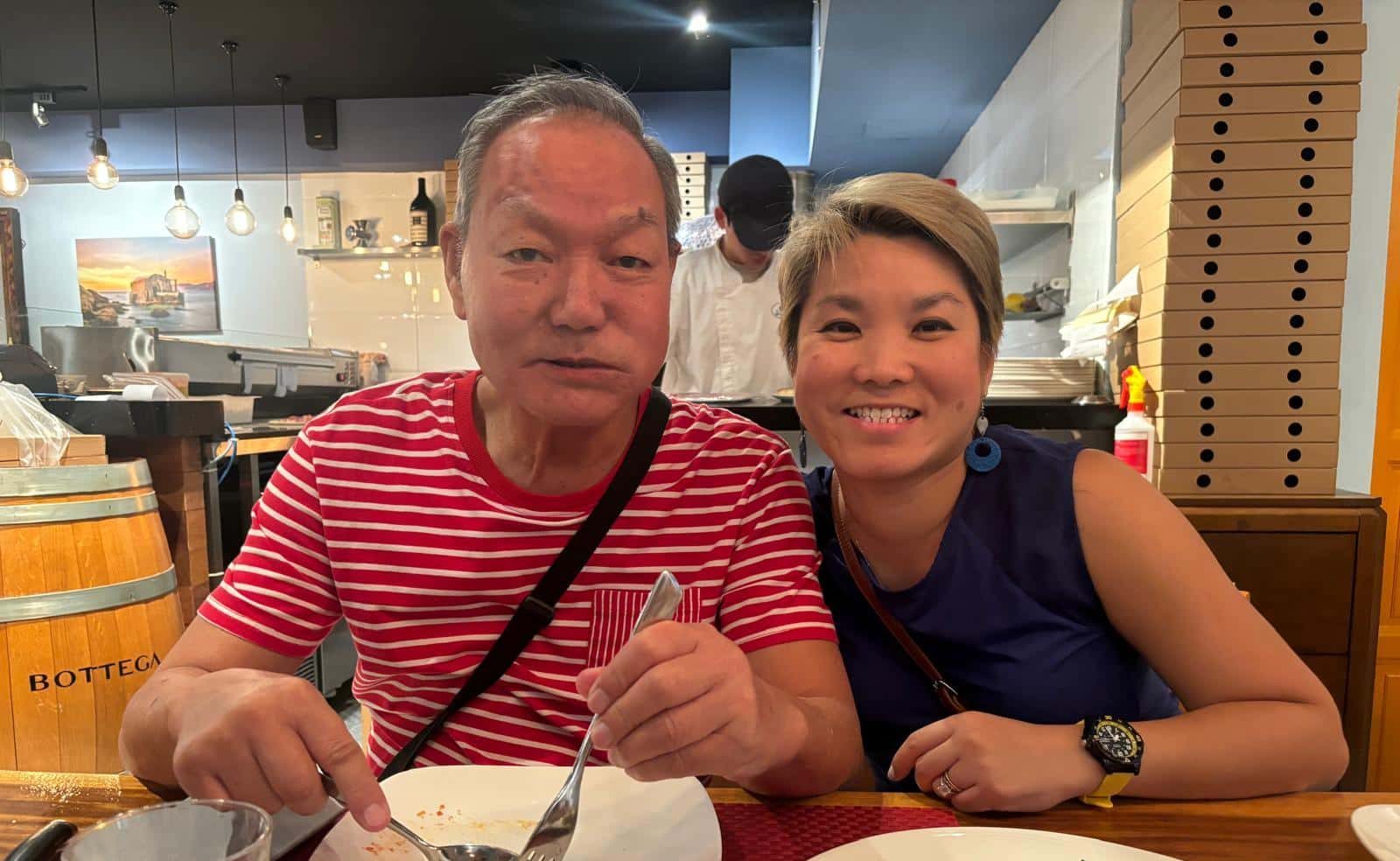“I wanted to drown him”: Down the dark tunnel of postnatal depression
by Christine Leow // October 20, 2020, 4:32 pm

Motherhood was something Elaine Ho had always looked forward to. But her postnatal depression caught her by surprise. Photo courtesy of Elaine Ho.
Motherhood had always been something Elaine Ho, 35, was excited about. She was off to a good start, too.
“I loved being pregnant. I was driving till I was 37 weeks along. The baby came at 39 weeks. I even slept through my contractions.”
She and her husband Gideon Tan, 38, had it all planned. Ho would give up her job at Lien AID which required her to travel quite a bit, and be a stay-home-mum right after the baby was born.
“We believed firmly that we should be the primary caregiver to care for and raise our child ourselves. My husband was most supportive and very willing to share responsibilities in caregiving.”
Going downhill
Being a full-time mum was about the only thing about motherhood that did go as planned for Ho in the early days.
“I developed quite severe OCD.”
“Breastfeeding was a challenge. I was breastfeeding exclusively and my baby didn’t put on any weight in the first month. In fact, he lost weight. It gave me the shock of my life. My paediatrician was shocked, too.
“I gave up breastfeeding. And everything went downhill from there. I was very anxious, very angry. My husband tried to do everything within his might and power to help. But I went on a downward spiral emotionally.”
Unbidden, an old coping mechanism returned.
“I developed quite severe OCD,” recalled Ho. “I couldn’t bear the thought of someone cleaning up after me.”
For Ho, the obsessive-compulsive disorder (OCD) manifested itself as meticulous cleaning and de-cluttering. It was how she dealt with the unimaginable some 15 years ago.
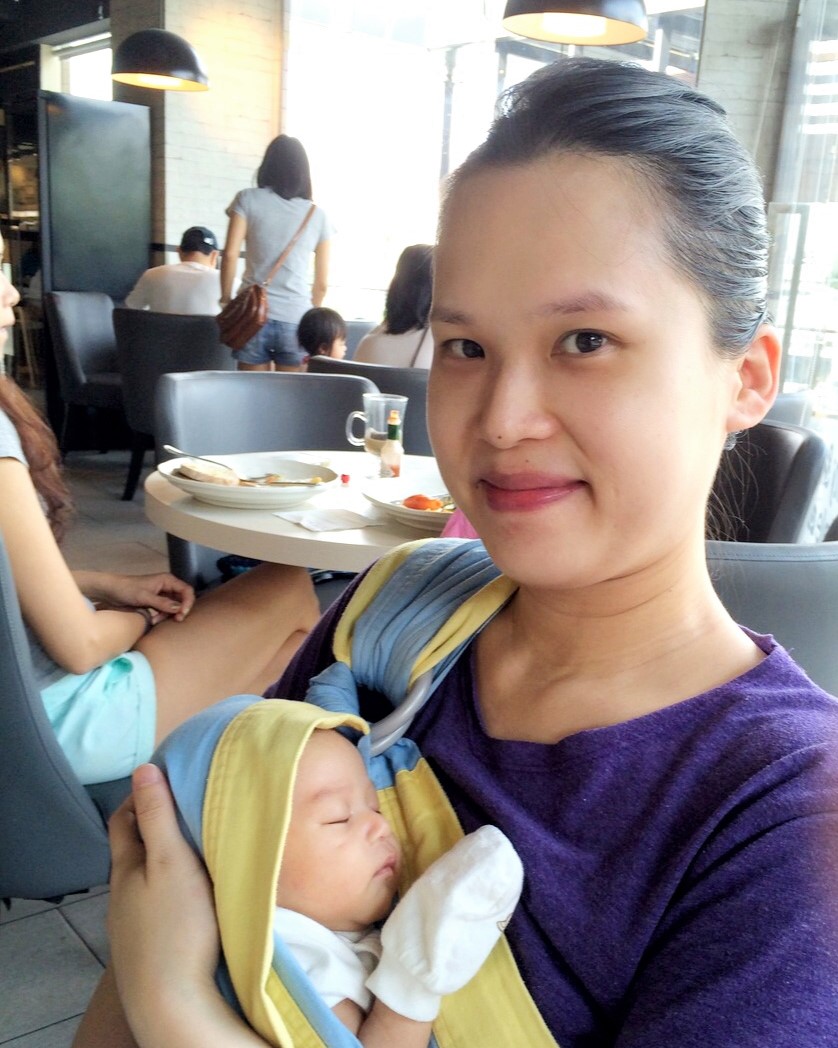
When baby Michael arrived, Elaine was overwhelmed by all the responsibilities of motherhood and an old coping mechanism – OCD –crept back into her life. Photo courtesy of Elaine Ho.
Ho was studying in Melbourne when her mother succumbed to lung cancer just six months after being diagnosed. When she returned to Singapore for the wake, she cleaned up. Obsessively.
She could not sleep. She lost her appetite. She lost weight.
“My siblings were like, ‘Why are you cleaning and cleaning, de-cluttering and being in control?’ I just needed to do something that would give me a positive outcome.”
As the years passed, Ho managed to keep her OCD in check.
“I could travel to rural places in China and it was okay,” said Ho whose job with Lien AID involved helping to bring water and sanitation to the rural poor.
But when baby Michael came along, the OCD returned “plus 1,000 times”.
“I had to clean everything, sterilise everything, watch him like a hawk.”
Ho refused all help even though she was exhausted. She felt that she was the only one who could mind Michael and that no one would understand her. Concerned family members were rebuffed.
She could not sleep. She lost her appetite. She lost weight – almost 8kg. Then, there were the extreme mood swings.
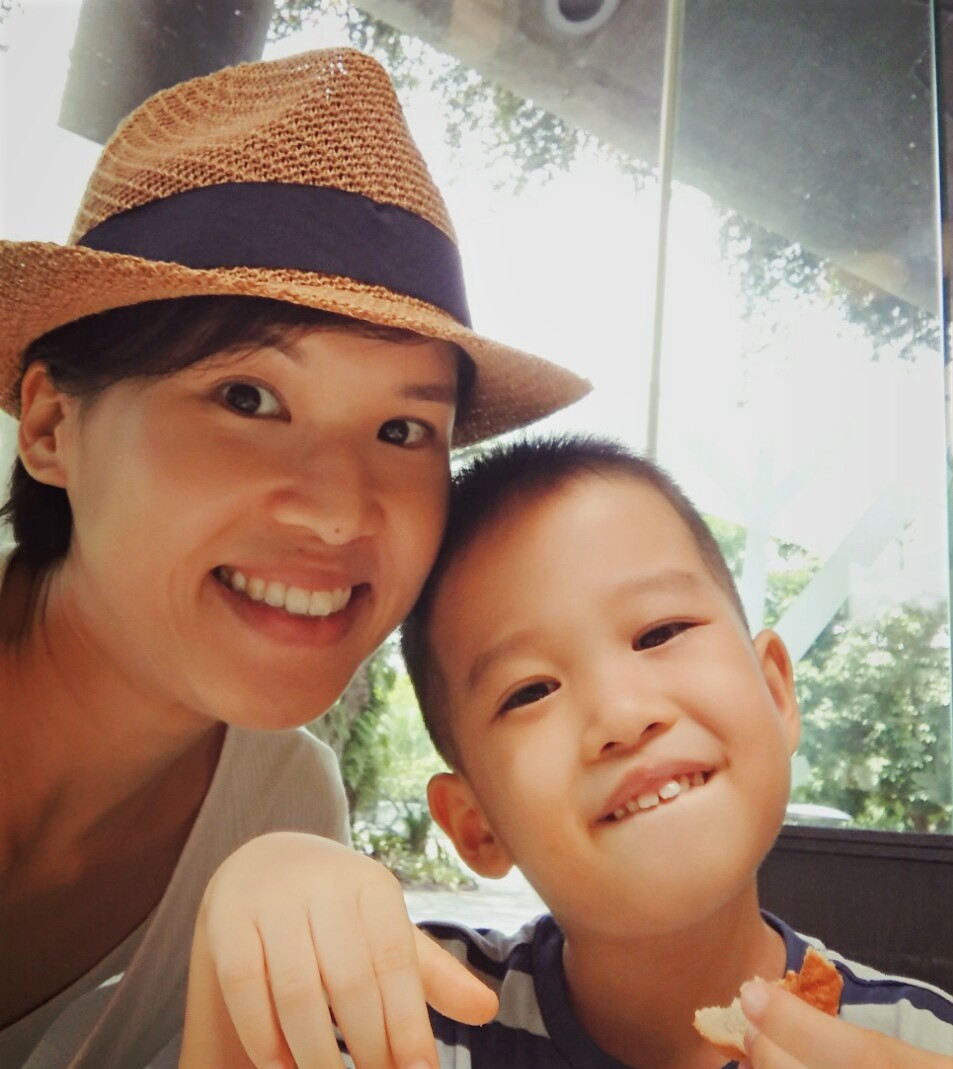
Now a happy, energetic six-year-old, Michael is seen here with Elaine, who continues to be a stay-home mum. Photo courtesy of Elaine Ho.
“I was very angry all the time and emotionally very unstable. I could be cool and calm one moment and fly into a rage over little triggers like the baby not drinking his milk, us being five minutes late. I had a militant-like schedule. Anything out of my control or schedule would throw me off.
“I was very angry all the time and emotionally very unstable.”
“I was also resistant to all kinds of help. I didn’t want to see a psychiatrist. I didn’t want to take medicine.”
What Ho did not realise was that she was sliding into postnatal depression.
According to the Ministry of Social and Family Development website, one in 10 women who have recently given birth suffer from postnatal depression (PND).
Unlike baby blues – a postnatal syndrome that hits during the first week after delivery and lasts up to a week at the most – PND is an illness that can last for years. It is characterised by symptoms such as sadness, irritability, extreme tiredness, apathy, a sense of hopelessness, guilt, loss of appetite, anxiety, physical pains like body aches and even negative feelings towards the baby.
Reaching out
Four odd months in, stressed and sleep-deprived, Ho decided to end it all.
“I wanted to drown my baby. I shut off everything at home, locked the doors and switched off my phone. Then I filled up the bathtub and thought: Let me just drown him.
“But there was a voice telling me not to do it. And my pragmatism got the better of me. I didn’t want to go to jail or be sentenced to death. My marriage would fall apart, my family would be devastated. I snapped out of it. It was very real, very scary.”

The thought of her marriage falling apart kept Elaine from hurting her baby in her darkest moments of struggling with postnatal depression. Photo courtesy of Elaine Ho.
Ho called her husband and told him to come home immediately. She was ready for someone to help her. It was around that time that another mother came along.
She was a cell group friend who had recently had her third child who was about Michael’s age and was going through PND herself. The older mum recognised Ho’s symptoms and reached out.
The older mum recognised Ho’s symptoms and reached out.
“She doesn’t talk a lot. She’s not very vivacious. She’s very cool, very collected and she was very diligent and kind when she helped me. Because of that, I just opened up to her.”
The two mums would meet every week at the park, husbands and children in tow. They still meet, six years on.
“She shared with me how she went through postnatal depression with her first and second child and that she was on medication with her third child.
“She would share the Word with me and pray with me. She refused to let me have a pity party where I blamed others, ‘This child came and messed up my world, my marriage, my life’.”
At one point, her friend even asked Ho if she was glad that she was experiencing PND.
“She told me, ‘Don’t respond now. Go home and think about it.’”
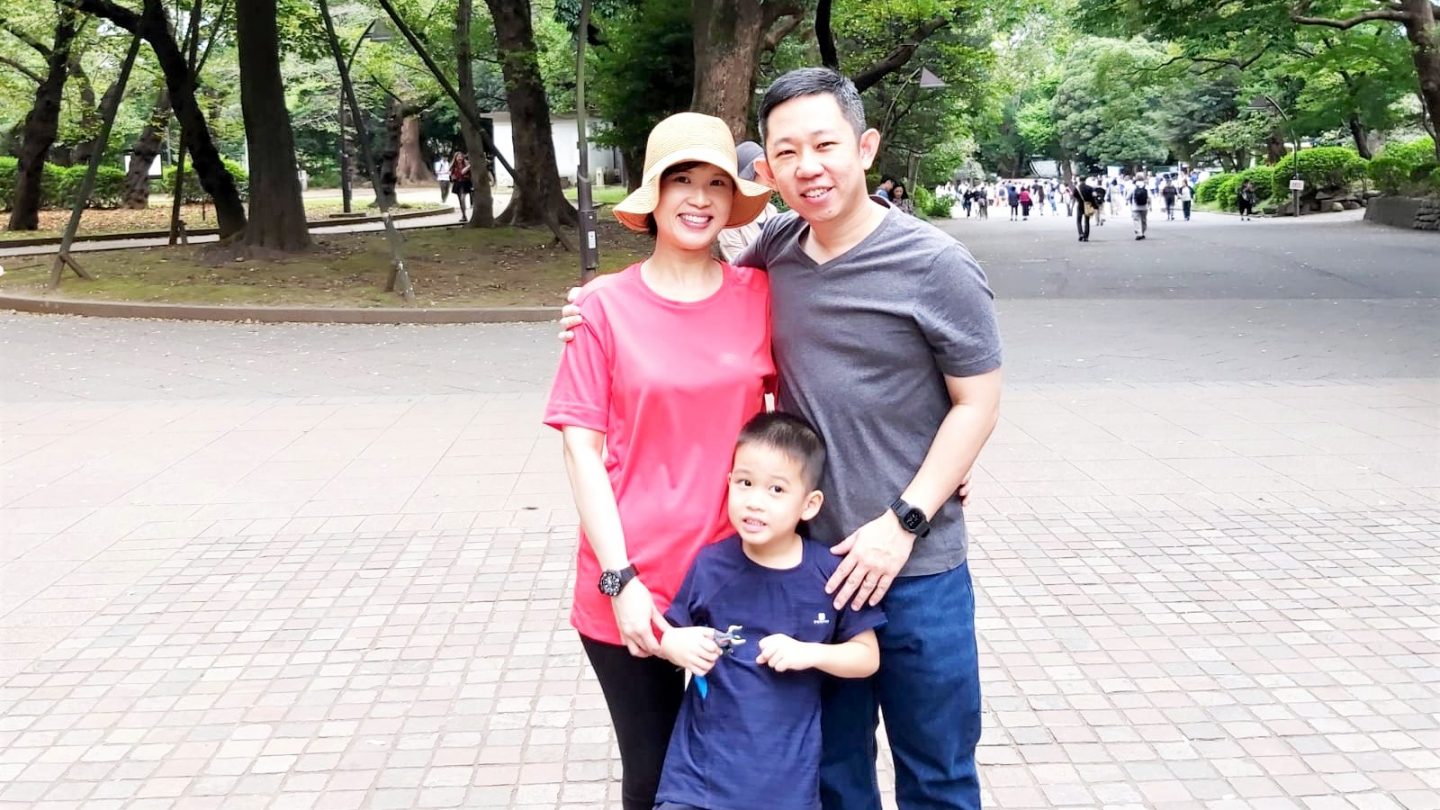
Meetings in the park with her cell group friend, families and children in tow, provided Elaine with an opportunity to study the Bible and share. This was key to slowly bringing her out of her depression, she said. Photo courtesy of Elaine Ho.
Ho was not glad then, not even close. But after a few months of being mentored, her answer changed.
“I told her I was glad because (the PND) broke me completely. Everything had been going so well, everything in life was great.
“I had to be broken through motherhood before I heard God tell me, ‘You have no one else, seek me, come to me’. It was humbling. I read the Bible cover to cover. I prayed constantly. The faithfulness of the Lord became so real,” said Ho who became a Christian when she was 17.
Struggling mums
The PND lasted three years. But the experience made Ho “more sympathetic towards young mums”. Which was why when she heard that an old friend had given birth again, she called her.
Ho and Christina Siew, 35, had met in church as teens. Though life had taken them on different paths, they had always kept in touch.
The nurses “thought I was dying”.
Said Siew: “After I had my first kid, Elaine would check up on me. When I needed spiritual support or someone to give me spiritual nuggets of wisdom, Elaine would send me materials.”
Although Siew was already a mum to three-year-old Evangeline, motherhood the second time around was still challenging for her.
“For my first one, I was struggling but with the second one, the depression climaxed. My second one would wake up every two hours at night and her cries were particularly loud.”
The difficulties after baby Jubilee was born was just one in a string of challenges Siew encountered. While pregnant, she had tested positive for an unusual strain of tuberculosis (TB) that left her breathless, puzzling the doctors. She was hospitalised for weeks, during which the nurses “thought I was dying”.
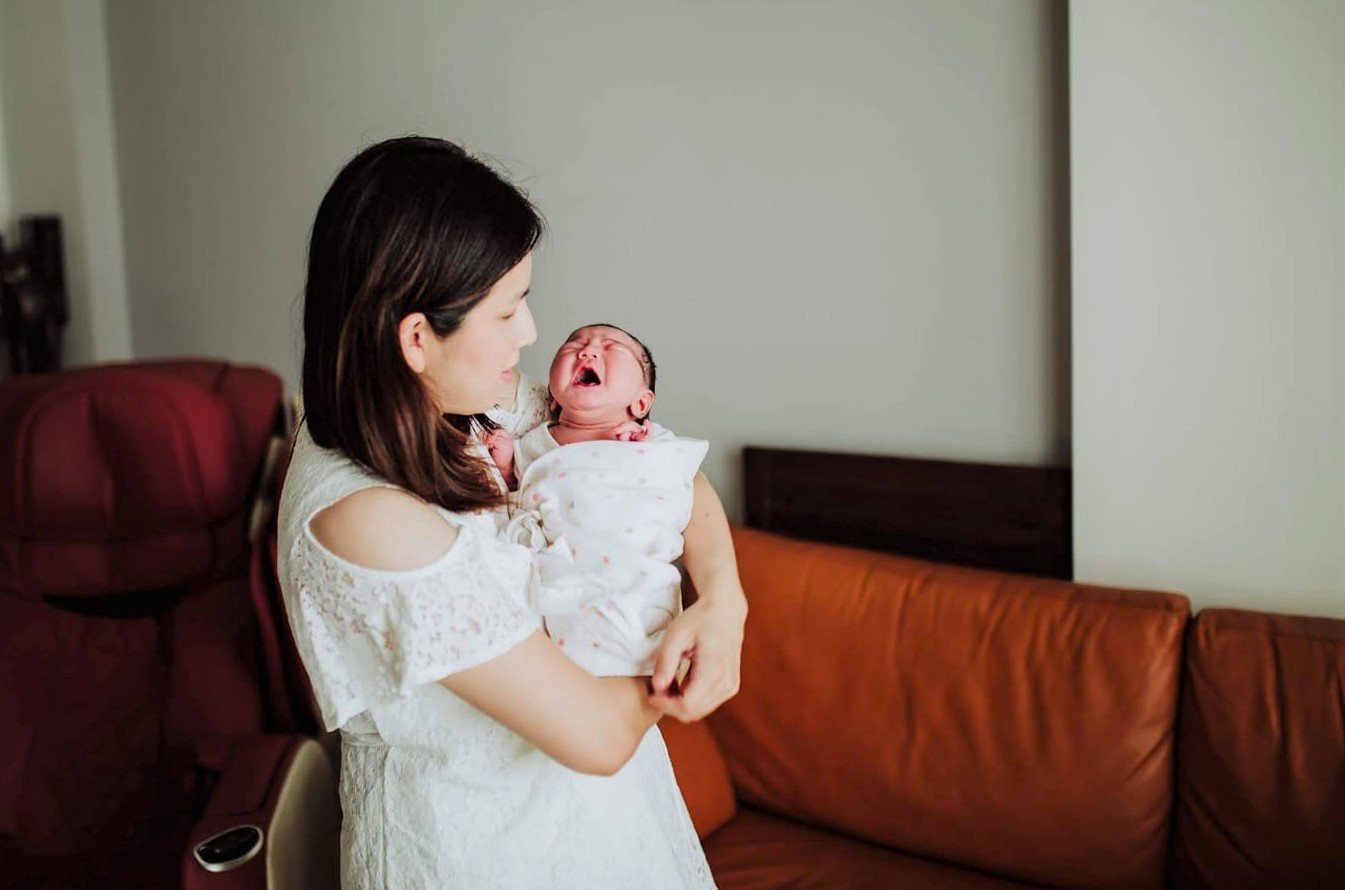
After going through a pregnancy with several challenges, Christina Siew struggled with managing two children after baby Jubilee arrived. Photo courtesy of Christina Siew.
“I had fluid in my lungs and they had to puncture a hole in my lungs to drain the fluid. I had to have chest X-rays. All this happened during my first trimester.
“I just kept leaning on God.”
“I thought, God, you have given me this calling (to be a mum). Now, am I going to die from it? I had to really trust God step by step. It drew me closer to Him, to lean on Him and trust Him.”
Even after she was discharged, her ordeal did not end. Every day, she had to go to a polyclinic to be given 10 types of pills.
After she recovered, her husband, Stephen Tan, 38, and her older daughter Evangeline took turns to fall ill with the flu and stomach flu. Then, Tan developed a rare growth in the intestines that required surgery.
“Doctors didn’t even know what it was. They had to Google it. I just kept leaning on God but I wondered, ‘Why is it with this second child everything came?’”
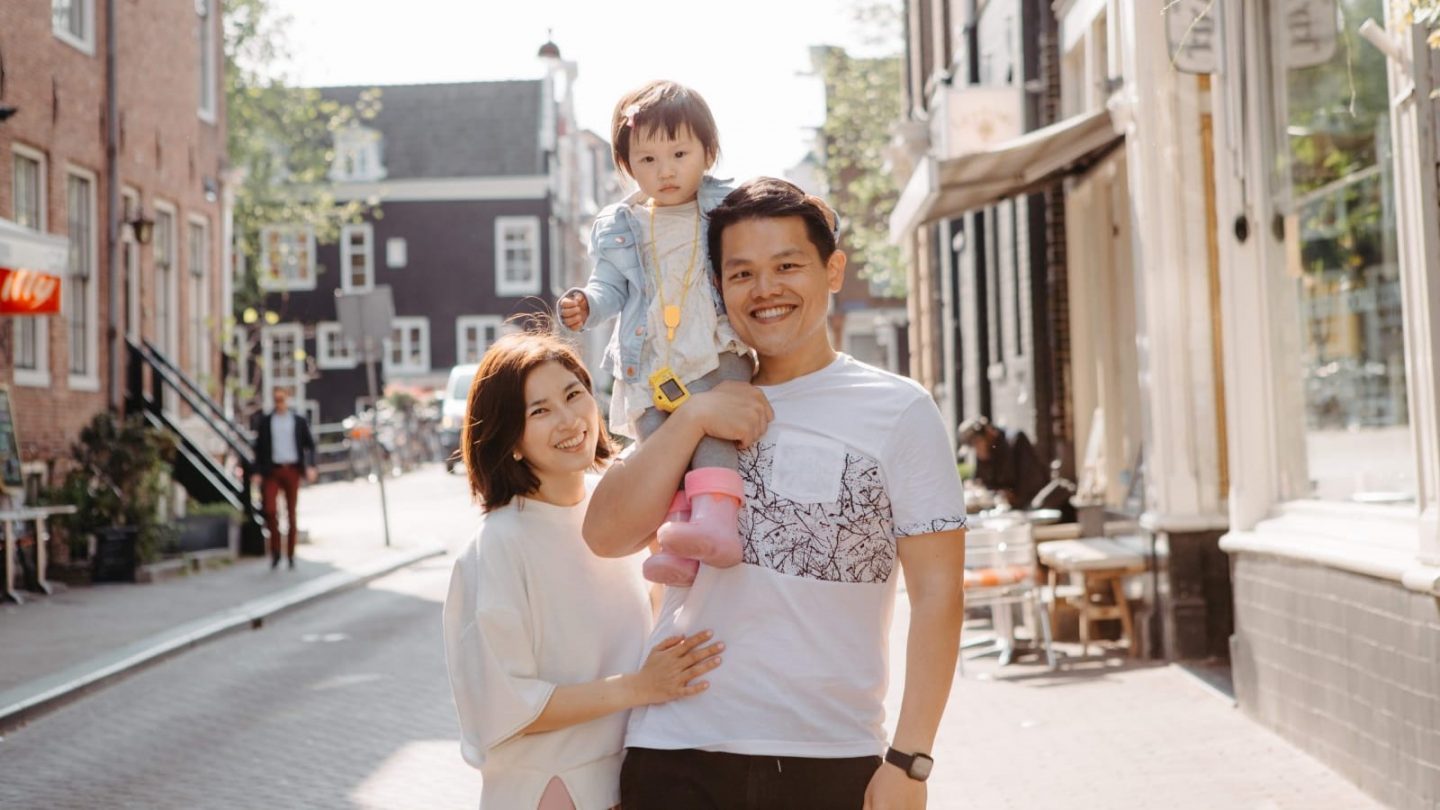
Both daughter, Evangeline, and husband, Stephen, took turns falling ill during Christina’s pregnancy after she herself recovered from TB. Photo courtesy of Christina Siew.
Not long after Jubilee was born, Covid-19 struck. And because of the nature of Tan’s work as a civil servant, he had to be out of the home for long hours. Siew was left to manage a newborn and a toddler on her own.
“It’s very hard for people to counsel you if they haven’t gone through it.”
“I was sad all the time. I was crying every day, and I got very angry and very frustrated. But I didn’t think I had postnatal depression. I thought it was normal, that I was just adjusting.”
Thoughts of silencing her baby with a “pillow over her face” came even as she struggled with her emotions.
Her family did not know about her ordeal but a friend noticed the symptoms of PND in Siew and advised her to get help, but “it’s very hard for people to counsel you if they haven’t gone through it”.
Leaning on God
Alone and isolated, it was the messages from Ho that kept Siew going on.
“She has been an online presence. It’s knowing that someone’s checking on you and you are not forgotten. And it’s also a chance for some adult conversation. It’s hard for me to share, but her persistence made me open up a bit.”
Quipped Ho: “Persistence in a kind way. I learnt that from my friend who journeyed with me.”
Siew’s experience made her realise how important it is for mothers with young children to get some kind of support.
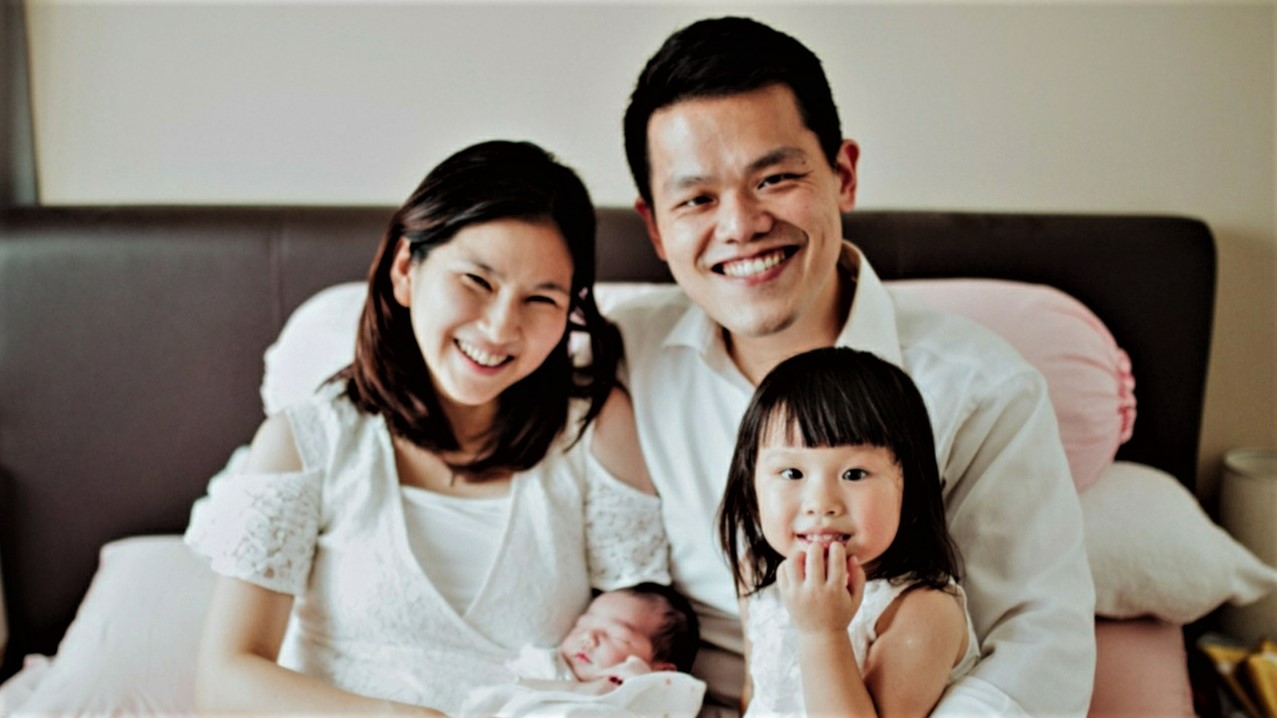
Having experienced support and encouragement from Elaine, Christina wanted to make sure other young mums had such a Christian community as well. This prompted her to start a WhatsApp chat group for mums with young children. Photo courtesy of Christina Siew.
“I was already in a lot of mums’ chat groups but there were none for Christian mums. So, I told Elaine, ‘Since you are already encouraging me with messages, why not gather other mums so it can benefit them, too?’”
“We send each other biblical parenting articles.”
In September, Siew started a WhatsApp chat group for mums with children below the age of five called Mums in His Grace. She invited the Christian mums she knew from her other chat groups. The group now has some 25 members.
“It’s hard for mum with young kids to go out. And a chat group is non-threatening. So, it’s just a place to share spiritual encouragement, where if they need prayers there are people who can pray for them,” explained Siew.
“I used to be in the Outreach Ministry before my first child was born, then I stepped down. In some small way, I hope to serve in this online ministry.”
Added Ho: “We send each other biblical parenting articles or Christian articles about marriage that we had read or devotions God has placed in our hearts.”
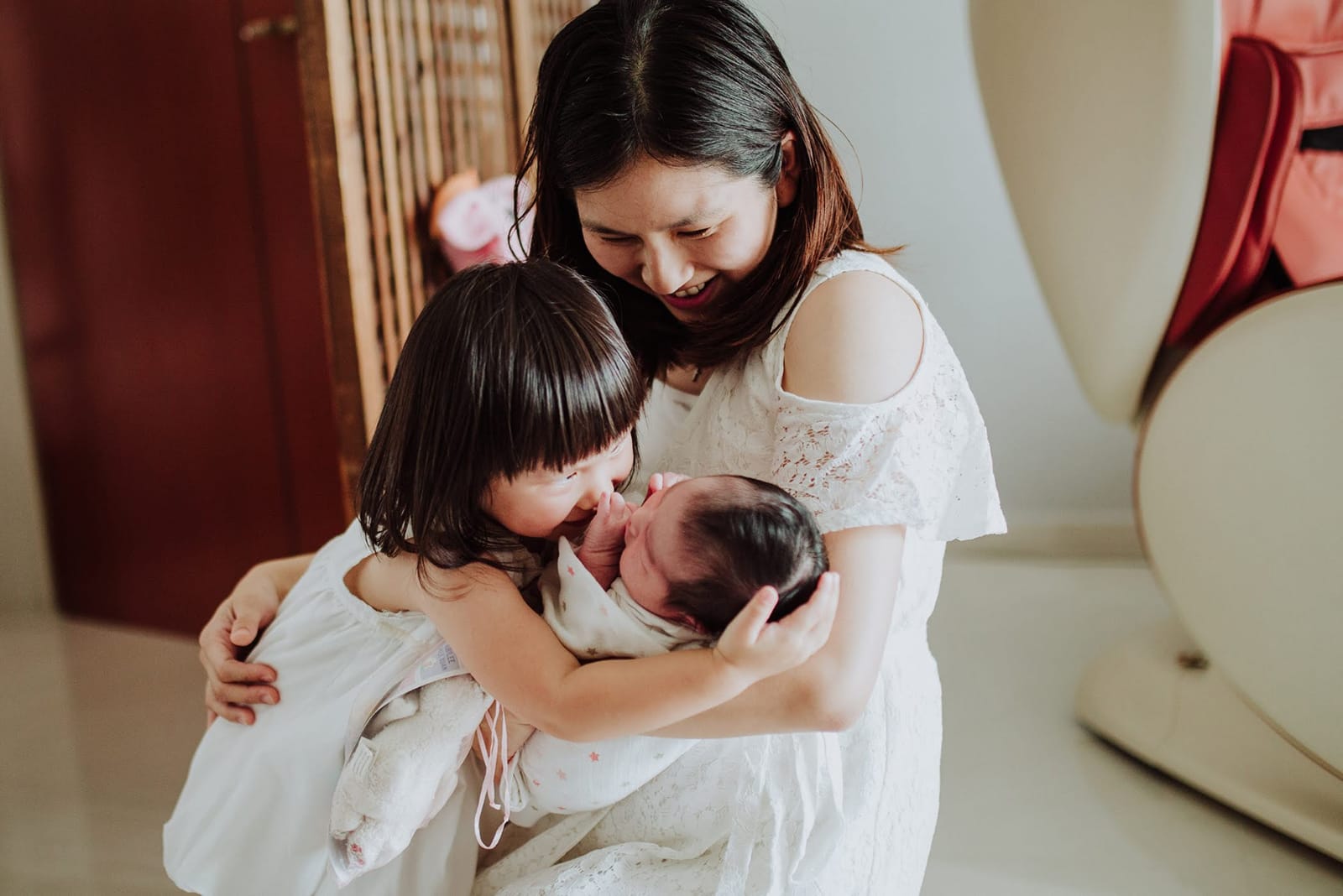
Christina is still managing her postnatal depression but maintains that the support of her community of Christian mums is instrumental in her recovery. Photo courtesy of Christina Siew.
Though some of the mums did not know each other at first, they have since become a community, with some mums contributing as well.
Siew is still battling PND. But she believes good can come out of the darkness.
“People think it lasts a month or two after you give birth, but it can last for years.”
“Everything for His goodness. Without going through this, you can’t share what you know.”
Siew has also learnt to ask for help. She told her husband about her PND and he has changed his portfolio so he can be home more.
On the importance of letting those around know the severity of PND, Siew said: “It’s an emotional illness. So, people around me don’t tend to take me as seriously as if it were a physical illness.
“People also think it lasts a month or two after you give birth, but it can last for years. So, it’s important not just to ask, ‘How are you?’ but to keep checking in with the person.”
That is what she hopes Mums in His Grace can do for mothers.
Mums in His Grace
Mums who are interested in joining the Whatsapp group, Mums in His Grace, can get in touch here.
We are an independent, non-profit organisation that relies on the generosity of our readers, such as yourself, to continue serving the kingdom. Every dollar donated goes directly back into our editorial coverage.
Would you consider partnering with us in our kingdom work by supporting us financially, either as a one-off donation, or a recurring pledge?
Support Salt&Light